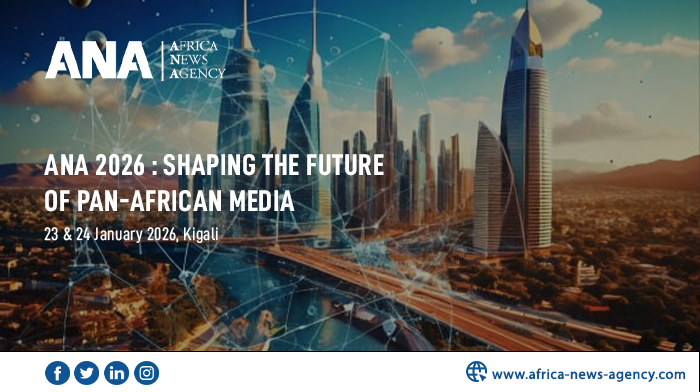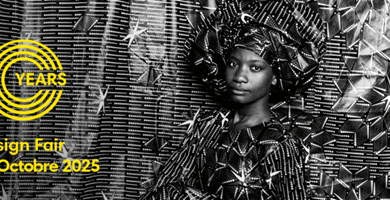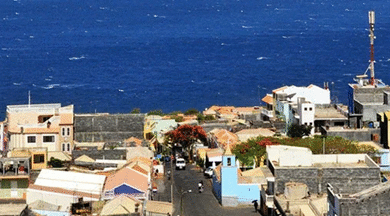African Women Leaders Network towards creating a fund to encourage women’s leadership
From April 24 to 28, Addis hosts the second edition of the African Women Leaders Network, in partnership with the African Union and the United Nations. A platform that brings together nearly 150 women leaders of the continent, on the political, economic, social scene etc. Objective: take concrete measures to strengthen the presence of women in decision-making positions ... and impose them! Interview with Bineta Bineta Diop, AU Special Envoy for Women, Peace and Security.
Interview conducted by Dounia Ben Mohamed, Addis
What is the purpose of the second edition of the African Women Leaders Network, in partnership with the African Union and the United Nations, to be held from April 24 to 28 in Addis?
We are campaigning for Africa to put young people and women at the heart of its development. Today everyone, politicians, analysts, academics, all stakeholders including women and young people agree on this point. It is today obvious. The African people really need to take over the leadership of their continent. We look at conflicts in Africa, women should not only be seen as victims, they should no longer be victims, but be present throughout the process of mediation, resolution and reconstruction not only as processional stakeholders but to be at the forefront of mediation. To have women in armies, as gendarmes of peace, on all peace processes, mediation, protection, etc … In the same way we must ensure that the woman is at all levels of governance. In all areas, agriculture, business, politics, we must see women leaders. The last president is gone. Ellen Johnson Sirleaf. Africa has 55 countries today, where are the women? That means we have to go to political parties now. That is why we are hosting this forum this week. The first was held in New York last year with the African Union and the United States to see how we are going to pioneer the transformation of Africa. There came out a call to action. No more speeches. And we took into account this demand of women through this second edition.
No more speeches then, will you put in place concrete measures?
Exactly! We have set up six projects, six axes, which are part of the AU Agenda 2063 and 2030. What is important to us is to put up projects that we can monitor. Projects to identify, so that they are set up, not by us, but identify the main actors able to do so, and monitor and the first axis is finance. Women entrepreneurs. Whenever they are asked what they need, they talk about access to finance. We have asked the United Nations and the Economic Commission for Africa, which have relations with the banks and the players in the world economy, to give us a framework so that next year we can say will have 1,000 women entrepreneurs and they will have access, for example, to $ 100 million. We are therefore setting up this private sector funding mechanism for women, supported by the African Union and the United Nations; a fund for women leaders in Africa, at all levels even in rural areas. When it comes to women, we are mainly talking about micro-credit, but it has had its day. The micro is always for women and credit for men. Here we remove the micro to talk about credit for women. The second axis is the participation of women in political parties. We are talking about positive discrimination, for example, we are talking about 30% women, we are going to appoint a woman minister, but they are not integrated in political parties. Now it is about punishing political parties that do not give space to women by not calling to vote for them. We must punish.
Are you therefore determined to impose on the leaders in place the measures adopted in Addis Comment?
Through advocacy but also actions on the ground. On agriculture for example, one of the targeted axes, we have seen countries like Morocco develop their agriculture, so we are working with OCP on this aspect. We also have the support of political actors such as President Obasandjo, Ethiopian Prime Minister, Ellen Johnson of Ethiopia. And the young people. We, African women of all segments, have to sit around a platform with young people and discuss issues that concern them. How we can set up mentoring programs for young people, girls in particular who suffer much more discrimination than boys. We must make sure that women and young people are accompanied, supported, coached, teach them our knowledge and experience and they also have a lot to give us. When we look at new technologies, they master them much better than us and that is why we are relying on the AU and the United Nations, because they have the power of mobilizing funders, media … but we will also carry out campaigns on the ground. For example, on the issue of early marriage one has to go to the grassroots, talk with the traditional and religious leaders and young people can help us go to the grassroots to transform our continent and minds and to ensure that women are no longer relegated to the lower levels.







